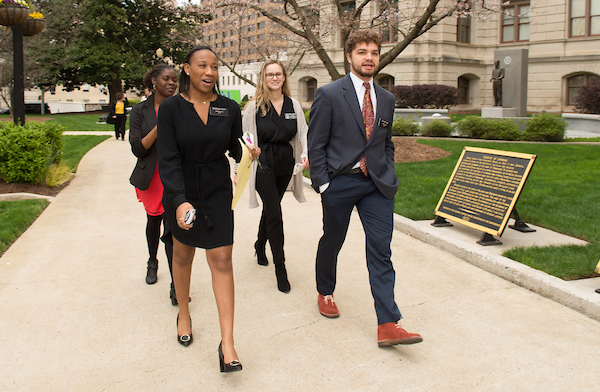Political Science
Learn More About Political Science
Admission Requirements
None.
This program does not have specific admission requirements. Only admission to Kennesaw State University is required to declare this major.
Related Minors or Certificates Available
- Intelligence and Homeland Security Certificate
- Crisis Preparedness Minor
- International Affairs Minor
- Political Science Minor
Sample Classes
-
POLS 3312: Concepts in State and Local GovernmentState and local governments are increasingly important arenas of policymaking and political conflict in the United States. Around the country states are in the forefront of public policymaking and political controversy on issues ranging from economic development, education, labor relations, health care, environmental protection and marijuana laws, to social issues such as abortion, contraception, same-sex marriage and LGBT rights. Even when the federal government sets agendas and policies, state and local governments are often where implementation actually comes into contact with real people like you and me.
-
POLS 3365: The United States Judiciary
This class examines courts in the United States from an institutional perspective. Accordingly, most of the focus is on federal courts as the co-equal third branch of the U.S. government. Court structures, the role of courts, the legal process, and interactions between the judiciary and other institutions are all covered.
-
POLS 3387: Political Parties, Interest Groups, and Lobbying
This class examines political parties, interest groups, and lobbying in the American political system. Accordingly, most of the focus is on political party and interest group dynamics from historical and modern perspectives, and implications in terms of the current political climate and for the future. In addition, the course addresses the ways in which groups and individuals leverage their influence to impact political outcomes.
-
POLS 4405: Comparative Legal Systems
An examination of the ways in which the courts and the law in different countries affect public policy. The source and methods utilized in different legal systems (both democratic and nondemocratic) as transforming agents of society and/or means for maintaining order within it are explored.












